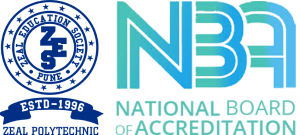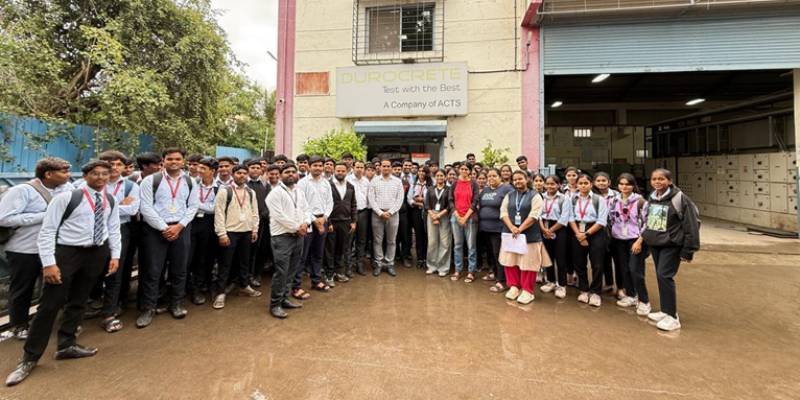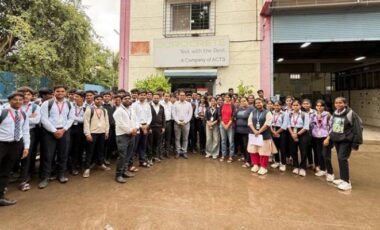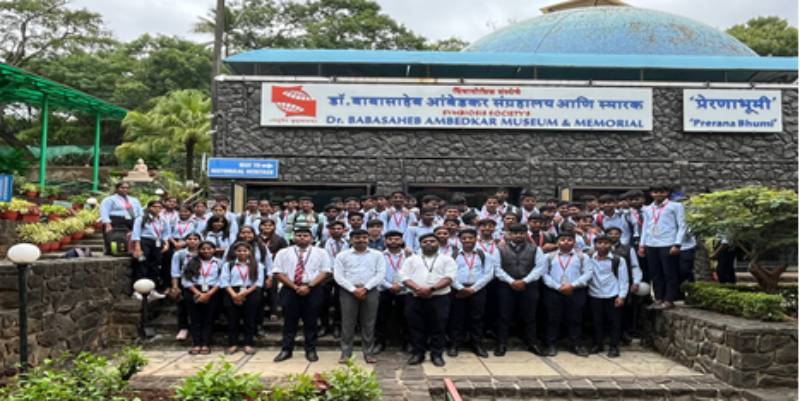Resource Person/ Facilitator: Prof. Manasi Sonawane
Summary:
Second-year Civil Engineering students visited The company conducts advanced concrete mix designs up to M80 grade, including self-compacting and pavement quality concrete, and provides compatibility testing for cement and admixtures. It also performs mechanical and chemical testing of reinforcement and structural steel, non-destructive testing (NDT), geotechnical investigations, and strength evaluations of materials essential to subjects like Strength of Materials and Concrete Technology. Durocrete is equipped with state-of-the-art machines for
core drilling, pile testing, coating analysis, and various physical property tests.
Objective/Purpose:
The purpose of this visit to Durocrete Engineering Services Pvt. Ltd. is to provide students with practical exposure to advanced material testing techniques used in the construction industry. Through this visit, students will gain insights into real- world applications of concepts from subjects like Strength of Materials and Concrete Technology, including concrete mix design, steel testing, admixture compatibility, and non-destructive testing methods. It aims to bridge the gap between theoretical knowledge and field practices, enhancing students’ technical understanding and industry readiness. Communities.
Outcomes:
An industrial visit was organized for diploma civil engineering students to Durocrete Engineering Services Pvt. Ltd., a reputed NABL-accredited material testing laboratory in Pune. The purpose of the visit was to provide students with exposure to modern material testing techniques and the practical applications of concepts learned in academic subjects.
- Enhanced Practical Knowledge: Students will understand real-time testing procedures for construction materials like concrete, steel, and admixtures.
- Application of Theoretical Concepts: The visit will help students relate classroom topics from Strength of Materials and Concrete Technology to actual industrial
- Familiarity with Advanced Equipment: Exposure to modern testing machines and tools used for material analysis and non-destructive
- Awareness of Quality Standards: Students will learn about NABL accreditation and the importance of following ISO standards in material
- Industry Readiness: Improved understanding of the role of material testing in civil engineering projects, boosting their confidence and preparedness for future job roles or
- Career Insight: Interaction with industry professionals will provide students with guidance on career paths in quality control, research, and testing sectors within civil engineering.








